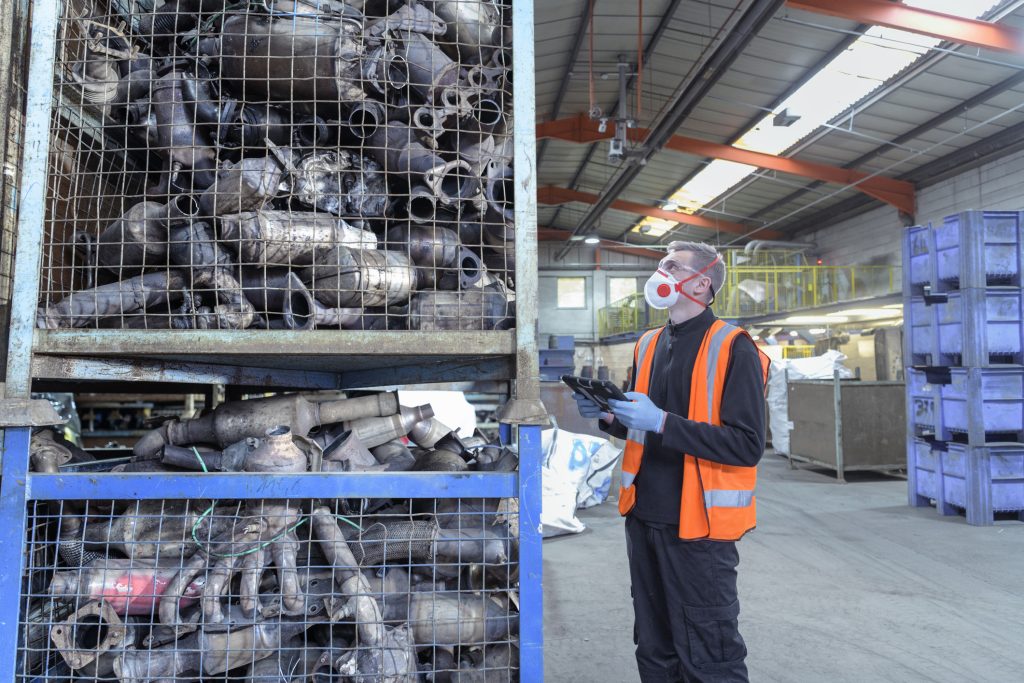Catalytic Converter Thefts Up, SpurringLawmakers to Act

By Max Dorfman, Research Writer, Triple-I
Rising thefts of catalytic converters – driven, at least in part, by increased black-market prices for the motor vehicle pollution-control component – have prompted renewed state and federal focus on stopping these crimes.
Converter thefts rose in 2021, with 52,206 reported, up from 1,298 in 2018, according to claims data from the National Insurance Crime Bureau (NICB). Catalytic converters are part of a vehicle’s exhaust system, reducing toxic gas and pollutants and turning them into safe emissions. Though the part itself is valuable—sometimes rising above $1,000 each on the black-market—the precious metals inside can be more valuable than gold. They include palladium, platinum, and rhodium, the latter of which is valued at $20,000 per ounce.
The NICB has found a strong link between “times of crisis, limited resources, and disruption of the supply chain that drives these thefts.”
In late 2022, the U.S. Department of Justice, alongside federal, state, and local law enforcement partners, broke up a network of thieves, dealers, and processors involved in selling stolen catalytic converters to a metal refinery for tens of millions of dollars. The ring spanned nine states, from California to Virginia. The United States is now pursuing forfeiture of $545 million connected to the case.
“This national network of criminals hurt victims across the country,” said FBI Director Christopher Wray. “They made hundreds of millions of dollars in the process—on the backs of thousands of innocent car owners.”
Lawmakers take notice
In 2021, 26 states across the U.S. proposed bills to limit the theft of catalytic converters. Stringent laws in Arkansas, South Carolina, and Texas require scrap metal buyers to maintain records of catalytic converter purchases. In Minnesota, a Catalytic Converter Theft Prevention Program was created for investigation and prosecution of this crime.
More recently, U.S. Rep. Jim Baird of Indiana introduced a federal “Preventing Auto Recycling Theft Act,” which would help law enforcement address these thefts by marking each converter with a traceable identification number and establishing federal penalties.
“Whoever steals or knowingly and unlawfully takes, carries away, or conceals a catalytic converter from another person’s motor vehicle, or knowingly purchases such a catalytic converter, with the intent to distribute, sell, or dispose of such catalytic converter or any precious metal removed therefrom in interstate or foreign commerce shall be fined under this title or imprisoned not more than 5 years, or both,” the legislation says.
Companion legislation has been introduced in the Senate by Sen. Amy Klobuchar of Minnesota and Ron Wyden of Oregon.
Preventive measures can be taken
The NICB recommends several steps to protect yourself from catalytic converter thefts:
Install a catalytic converter anti-theft device.Park fleet trucks in an enclosed area that is secured, well lighted, locked and alarmed. Park personal vehicles, if possible, in a garage. If not possible and the vehicle must be parked in a driveway, consider installing motion sensor security lights. Whether in the garage or outside in the driveway, set the alarm on your vehicle if equipped.Attend a local NICB catalytic converter etching event. If none are currently scheduled in your area, contact a muffler shop that can etch your vehicle’s VIN on the converter, and spray it with a highly visible high-heat paint.
The NICB notes that these thefts can be covered by insurance under the optional comprehensive portion of your insurance policy, which provides coverage for damage to your vehicle not caused by a collision.





